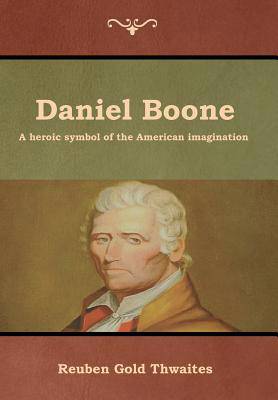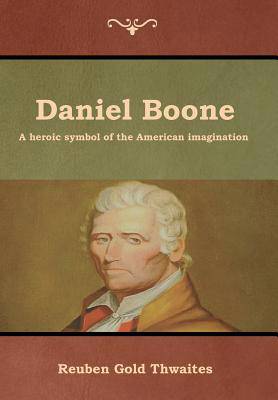
- Retrait gratuit dans votre magasin Club
- 7.000.000 titres dans notre catalogue
- Payer en toute sécurité
- Toujours un magasin près de chez vous
- Retrait gratuit dans votre magasin Club
- 7.000.0000 titres dans notre catalogue
- Payer en toute sécurité
- Toujours un magasin près de chez vous
Description
Daniel Boone (November 2, 1734 [O.S. October 22] - September 26, 1820) was an American pioneer, explorer, woodsman, and frontiersman, whose frontier exploits made him one of the first folk heroes of the United States. Boone is most famous for his exploration and settlement of what is now Kentucky. It was still considered part of Virginia but was on the western side of the Appalachian Mountains from most European-American settlements. As a young adult, Boone supplemented his farm income by hunting and trapping game, and selling their pelts in the fur market. Through this occupational interest, Boone first learned the easy routes to the area. Despite some resistance from American Indian tribes such as the Shawnee, in 1775, Boone blazed his Wilderness Road from North Carolina and Tennessee through Cumberland Gap in the Cumberland Mountains into Kentucky. There, he founded the village of Boonesborough, Kentucky, one of the first American settlements west of the Appalachians. Before the end of the 18th century, more than 200,000 Americans migrated to Kentucky/Virginia by following the route marked by Boone.
Boone served as a militia officer during the Revolutionary War (1775-83), which, in Kentucky, was fought primarily between the American settlers and British-allied Native Americans, who hoped to expel the Americans. Boone was captured by Shawnee warriors in 1778. He escaped and alerted Boonesborough that the Shawnee were planning an attack. Although heavily outnumbered, Americans repelled the Shawnee warriors in the Siege of Boonesborough. Boone was elected to the first of his three terms in the Virginia General Assembly during the Revolutionary War, and he fought in the Battle of Blue Licks in 1782. Blue Licks, a Shawnee victory over the Patriots, was one of the last battles of the Revolutionary War, coming after the main fighting ended in October 1781.
Following the war, Boone worked as a surveyor and merchant, but fell deeply into debt through failed Kentucky land speculation. Frustrated with the legal problems resulting from his land claims, in 1799, Boone emigrated to eastern Missouri, where he spent most of the last two decades of his life (1800-20).
Boone remains an iconic figure in American history. He was a legend in his own lifetime, especially after an account of his adventures was published in 1784, framing him as the typical American frontiersman. After his death, he was frequently the subject of heroic tall tales and works of fiction. His adventures--real and legendary--were influential in creating the archetypal frontier hero of American folklore. In American popular culture, he is remembered as one of the foremost early frontiersmen. The epic Daniel Boone mythology often overshadows the historical details of his life. (wikipedia.org)
Spécifications
Parties prenantes
- Auteur(s) :
- Editeur:
Contenu
- Nombre de pages :
- 142
- Langue:
- Anglais
Caractéristiques
- EAN:
- 9781644392102
- Date de parution :
- 24-06-19
- Format:
- Livre relié
- Format numérique:
- Genaaid
- Dimensions :
- 152 mm x 229 mm
- Poids :
- 367 g

Les avis
Nous publions uniquement les avis qui respectent les conditions requises. Consultez nos conditions pour les avis.






